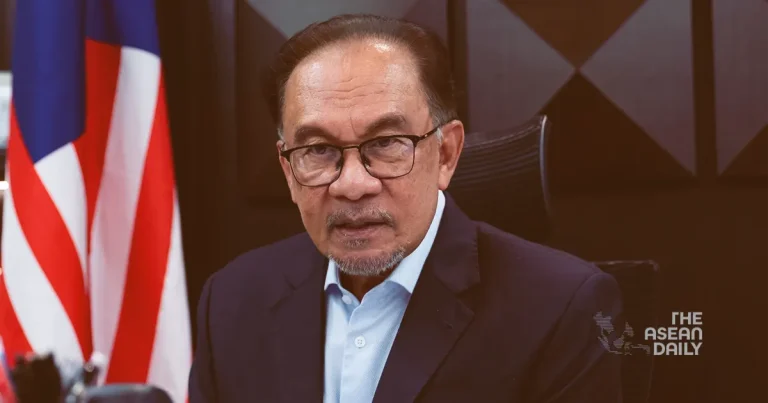12-1-2025 (KUALA LUMPUR) Malaysia’s Prime Minister Anwar Ibrahim finds himself at a critical crossroads as his unwavering support for Palestine puts him at odds with Western allies, particularly as Donald Trump’s return to the White House looms.
Sources within Malaysian government circles reveal growing tension between Kuala Lumpur and Washington, with a senior lawmaker disclosing that US diplomats have flagged Anwar’s Gaza stance as their “primary concern” regarding his leadership.
As the current chair of ASEAN, Anwar has taken an increasingly assertive position on the Palestinian issue, notably calling for Israel’s potential suspension from the United Nations during the Extraordinary Arab-Islamic Summit in Riyadh. His firm stance includes maintaining Malaysia’s long-standing policy of non-recognition of Israel and barring Israeli commercial activities within its borders.
The Prime Minister’s advocacy has intensified amidst mounting international concern over the conflict, particularly following a UN special committee’s assessment suggesting “characteristics of genocide” in Israel’s military operations in Gaza.
However, this principled position marks a significant departure from Anwar’s former reputation as the West’s preferred champion of Southeast Asian democracy. His recent diplomatic manoeuvres, including close ties with Turkey’s President Erdogan and the controversial appointment of former Thai Prime Minister Thaksin Shinawatra as an adviser, signal a marked shift towards pragmatic realpolitik.
Dr. Azmi Hassan of the Nusantara Academy for Strategic Research questions these alignments: “Malaysia’s capability to navigate ASEAN chairmanship independently shouldn’t be compromised by potentially problematic appointments.”
Domestically, Anwar’s transformation is equally evident. His unity government, while successfully bridging ideological divides, has retreated from key reform promises, maintaining restrictive legislation his movement once opposed. Political anthropologist Sophie Lemière observes, “The reform agenda appears to have given way to political expedience.”
As Malaysia enters 2025, Anwar faces the delicate task of balancing international relationships, regional leadership, and domestic stability. His evolution from reform champion to pragmatic statesman reflects the complex realities of governing in an increasingly multipolar world, where idealism often yields to practical necessity.




